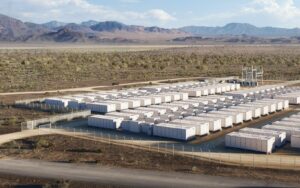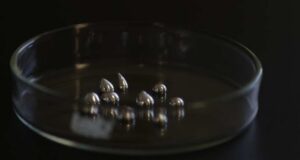Australia’s first plant testing the commercial-scale production of algae-derived crude oil has been launched in South Australia.
SA-based renewable fuels company Muradel officially opened the integrated biofuel demonstration plant on Friday, as a first step towards a commercial plant with the potential to produce 80 million litres of an environmentally sustainable fossil crude equivalent.
The $10.7 million demonstration plant, located in coastal town of Whyalla, will produce 30,000 litres of oil a year using Muradel’s Green2Black technology that produces biofuel from naturally occurring marine microalgae.
 It follows on from Muradel’s two acre open pond pilot plant near Karratha in WA, which was operated continuously for two years to test the carbon neutral technology developed by the company’s partners to grow the marine microalgae.
It follows on from Muradel’s two acre open pond pilot plant near Karratha in WA, which was operated continuously for two years to test the carbon neutral technology developed by the company’s partners to grow the marine microalgae.
Development of the Whyalla plant was backed by ARENA, with a $4.4 million grant awarded back in April 2013, along with in-kind and financial support from the Whyalla City Council, the South Australian government through and Muradel’s shareholders.
At the time ARENA awarded the grant, an enlightened sounding federal Energy and Resources Minister Martin Ferguson said building an advanced biofuels industry was just one of a number of competitive advantages Australia had the chance to capitalise on – as well as its “abundant sunshine” and climate.
According to Muradel CEO and University of Adelaide Associate Professor David Lewis, if the demonstration plant is successfully scaled to a commercial plant, it will produce 500,000 barrels of refinable green crude a year by 2019 – enough petrol and diesel to fuel 30,000 vehicles for a year.
Muradel’s subcritical water reactor technology works by taking microalgae grown sustainably in seawater ponds on site, combined with plant biomass and organic waste and – within minutes – converting them to a crude oil that is functionally equivalent to fossil crude.
Standard oil refining then produces cost comparable, low net carbon, liquid transport fuels including petrol, diesel and aviation fuels. Muradel says it will begin talks next month with downstream oil processers about refining and distributing its crude as transport fuel for shipping, aviation and road vehicles.
At the commercial scale, Muradel expects production costs would be on par with the cost of producing fossil fuels for transport.
“This is world-leading technology which can be scaled up exponentially to help steer our fossil fuel-
dependent economy to a more sustainable future,” Dr Lewis said.
The planned 1000-hectare commercial plant would also create at least 100 new skilled and operational jobs in the Whyalla region.
Dr Lewis also notes that the algae ponds have the added advantage of acting as carbon sinks that can capture greenhouse gas emissions produced by Whyalla’s heavy industry.







